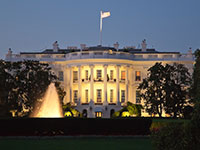On May 26, the U.S. Court of Appeals for the Seventh Circuit held that a wage-and-hour class arbitration clause violated the National Labor Relations Act (NLRA), setting up a circuit split with the Fifth Circuit, and opening the door for the U.S. Supreme Court to weigh in on arbitration clauses in employment agreements containing class action waivers.
Seventh Circuit Holds That Mandatory Arbitration With Class Waiver Violates NLRA, Setting up Circuit Split











